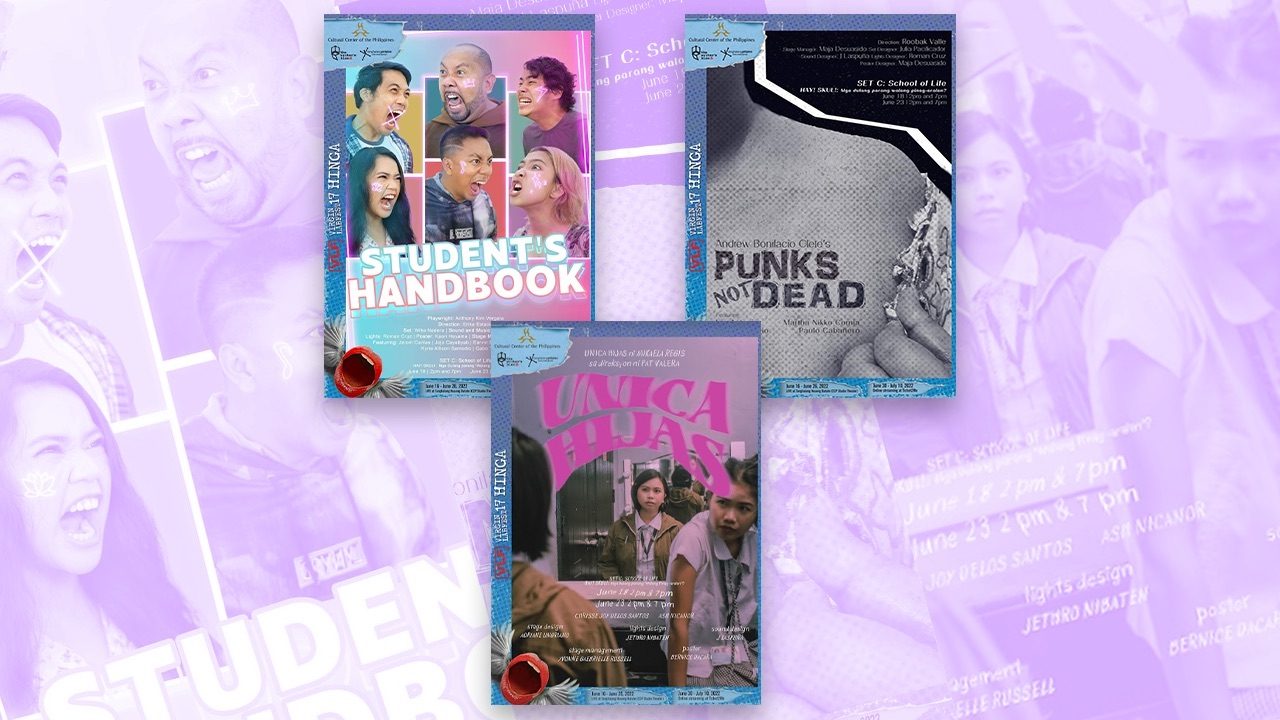SUMMARY
This is AI generated summarization, which may have errors. For context, always refer to the full article.

From Frank Wedekind’s Spring Awakening to John Patrick Shanley’s Prodigal Son and beyond, the school has been a favorite subject of scrutiny in theater. Educational institutions handle individuals at critical developmental periods in their lives — when minds are malleable and ethics and ideas of self are still being formed. With its rigidity and routine, the school has often been upheld as a benevolent institution, only for this facade to fall away, revealing a deeply flawed interior, if not outright insidious.
Our relationships within the classroom — between professor and student, teacher and parent, bully and the bullied — are our first encounters with differences in power dynamics and in conflict resolution. These tensions make it easy for the school to be depicted in art as a recognizable microcosm of the larger world — especially when one remembers how its current state in the country originates from violent and oppressive colonial roots during the American occupation. It is a contested space that aspires (or dare I say, masquerades) as a safe space — instead rife with personal, structural, and historical conflict.
It is for this reason that “Set C” of the 2022 Virgin Labfest is the most cohesive. Each play dissects how the school functions as an ideological prison and how individuals and groups struggle to break free from its clutches. Student’s Handbook teases out the dysfunction in a Catholic university just weeks before the 2020 lockdown; Unica Hijas centers around a pre-pandemic high school romance; and Punks Not Dead depicts the absurdity of the shifting protocols at the height of the pandemic and how an elementary school attempts (and fails) to adapt. Together, the three one-act plays chronicle the transformation of the institution in the country across time and what it unveils is the multitude of ways people navigate this labyrinth, separating those who are willing to be better and those who refuse to grow.
Student’s Handbook (written by Anthony Kim Vergara, directed by Erika Estacio)
There are moments when Student’s Handbook is incredibly potent. When Claire (Marynor Madamesila) is reprimanded and physically harassed because of a well-hidden lotus tattoo, one suppresses the impulse to rise out of their seat to defend her. When Benjo (Jerom Canlas) stands up to Fr. Oks (Jojo Cayabyab) for attending a rally, one cannot help but admire such youthful bravery. When the meek Mary (Kyrie Samodio) suddenly slaps Fr. Oks, one cannot help but feel immediate satisfaction. Such moments push to the fore what the material critiques — the unreasonable demands of compliance within the school system and the expectation of blind obedience under the Catholic church.
Yet despite these intentions, it must be said that Student’s Handbook is remarkably uneven, unfocused and, dare I say, unfunny. Despite the winning efforts of the comedic duo Gabo Tolentino and Earvin Estioco, most of the jokes do not land. Though these problems can easily be blamed on actors, they are rooted in issues with the writing and direction and how the comedy seems tangential and inconsequential to the situation rather than birthed from it.
Playwright Anthony Kim Vergara overstuffs the material with commentary — about the school system, about the Philippine government, about religious rigidity, and more — that it only skims these broad topics, and makes the plot convoluted and character motivations indistinguishable. Most off-putting is its attempt at addressing the COVID-19 pandemic — admirable in its directness but belligerent and unsympathetic in its attack. In its choice to parrot reality and pass it off as superficiality and ignorance, it becomes, in the words of acclaimed writer Ursula K. Le Guin, “commodified fantasy [that] takes no risks: it invents nothing, but imitates and trivializes. It proceeds by depriving the old stories of their intellectual and ethical complexity, turning their truth-telling to sentimental platitude.”
It is not as if it is impossible to create a comedy centered around the pandemic (see Punks Not Dead). However, the text and its treatment are fundamentally at war with one another. Director Erika Estacio stylizes the piece with choreographed blocking, frenetic lighting design by Roman Cruz, and cutesy video game-inspired sound design by Teresa Barozo to instill a youthful energy into it. But the contrast is ineffective and when these elements fall away — when the piece gets to the actual conflict — the play becomes much more interesting, clear, and truthful.
Student’s Handbook fails because of its excessiveness and one only hopes that Anthony Kim Vergara either curbs this tendency or commits fully to its absurdity.
Unica Hijas (written by Mikaela Regis, directed by Pat Valera)
Unica Hijas is radical not because of its uniqueness but because of its familiarity. After being caught in an almost-kiss in one of the rooms, Nikki (Joy Delos Santos) and Mitch (Ash Nicanor) wrestle with the possible repercussions from their Catholic high school. The narrative plays out straightforwardly — with the recently “out” and self-confident Mitch attempting to convince Nikki to do the same before they go into the principal’s office.
The success of Unica Hijas lies in the steps taken to get to its inevitable act of rebellion. Director Pat Valera uses instincts he honed in Mula Sa Buwan to draw out the kilig in every scene between Mitch and Nikki, loading it with saccharine that envelopes the characters and the audience with love, making Nikki’s initial resistance to “coming out” all the more bitter. The three tracks that are performed throughout the piece — Bea Valera’s You Make Me, Ash Nicanor’s Kasintahanan, and Nica del Rosario’s Dalangin — heighten the romance and queer the dominant image we have of the harana, while the set design by Adriane Mark Ungriano further emphasizes the “reflection” at these crossroads.
Unica Hijas has been lauded and dismissed on the same grounds — it is art that strives to connect its audiences to their emotions. Such “saccharine” and “sentimental” qualities in stories are not often associated with prestige, and any criticism praising such is relegated to emotional platitudes. Yet in this dismissal, many of its strengths, specifically in Mikaela Regis’ writing, are left unpraised.
In Regis’ writing, the pain of “coming out” does not come from any source of trauma or religious indoctrination, but rather a desire to preserve an existing myth; an image of one’s self and personhood. Resisting the inevitability of losing one’s self is tied not just to “coming out” but also to coming of age, and in making these inexplicably linked, Regis zeroes in on the tension between the desire of being seen and fear of being discovered; of changing beyond recognition. It queers how we have been conditioned by the environment towards self-rejection and through the conversations between the more optimistic Mitch and the more cynical Nikki, it questions our developed responses to these temporary environments.
By the end, Unica Hijas presents the prison of the school — the labyrinth of growing up closeted and Catholic — not as a death sentence or a source of generational trauma that will be passed down, but rather as something navigable. It shows that the buck can stop somewhere; that liberation can exist in small gestures; that, as cliche as it may sound, one does not have to do it alone.
Punks Not Dead (written by Andrew Bonifacio Clete, directed by Roobak Valle)
When a DepEd module went viral two years ago for implying that tattoos were linked to criminality, it was only a matter of time that someone fictionalized the situation. But what we could not have expected was how Andrew Bonifacio Clete — writer of Punks Not Dead — would weave in the failures of the education system with stories of the pandemic and the continuous corruption and perceived benevolence of the police, resulting in what is arguably a perfect cultural snapshot of the Duterte administration’s legacy.
Punks Not Dead is situated squarely at the height of the Delta lockdown and sees three unlikely figures meeting up at an elementary school. Mrs. Apple (Martha Nikko Comia), an elementary school teacher, is hounded by Bireng (Maria Bagio) for an error in the module, shifting the dynamics between her and her son. When parent/police officer Artur (Paulo Cabanero) enters the chaos, the play displays how such small mistakes interfere with how each fulfill their societal roles and dissect the consequences of such discrimination.
From using actual Grade 5 modules and spray bottles to demonstrating how social distancing affects character dynamics, Clete, along with director Roobak Valle and dramaturg Angelo Mangaliman, load the material with a plethora of well-researched details. Comia, Bagio, and Cabanero embody their tropes so well — from posture to vocal affect to gestures — that they deserve an award for excellent ensemble performance, landing every joke and playing up physical comedy without ever sacrificing truth. Even Julia Pacificador’s set design creates a plastic-covered world, similar to a face shield, emphasizing the perpetual need to be clean. Candy-colored lights by Roman Cruz and ambient music by J Laspuña further create an illusion of safety and innocence, only to be disrupted by the play’s final moments.
While it is all fun and games (at least at first), Punks Not Dead also expands to question the responsibilities of institutions in drawing lines between the moral and immoral, in shaping not only the minds but also the actions of those within it and outside it. When Artur pulls out his gun from his handle, one cannot help but feel he pulls it out too early. This isn’t that kind of play, is it? It’s too funny, too lighthearted. They wouldn’t do that in a school. But when we reach the conclusion, which will be undoubtedly polarizing, there is no laughter. There is only red and the sound of thunder. – Rappler.com
Add a comment
How does this make you feel?


There are no comments yet. Add your comment to start the conversation.